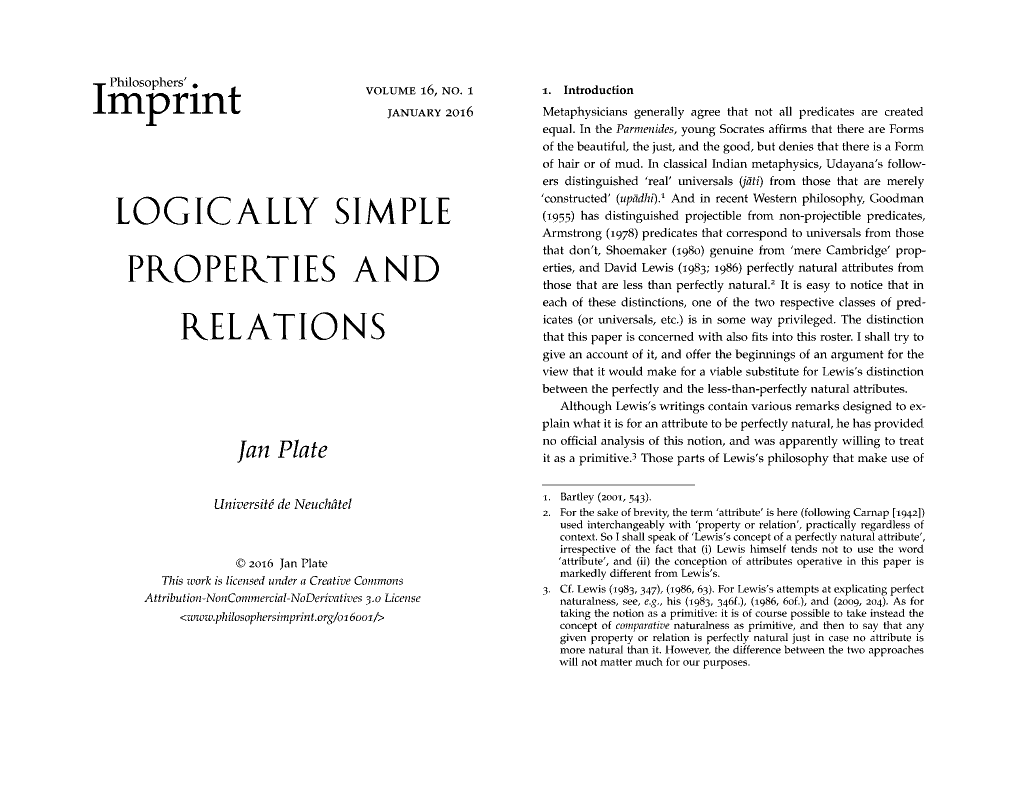Logically Simple Properties and Relations
Skip other details (including permanent urls, DOI, citation information): This work is licensed under a Creative Commons Attribution-NonCommercial-NoDerivatives 3.0 License. Please contact [email protected] to use this work in a way not covered by the license.
For more information, read Michigan Publishing's access and usage policy.
Abstract
This paper presents an account of what it is for a property or relation (or ‘attribute’ for short) to be logically simple. Based on this account, it is shown, among other things, that the logically simple attributes are in at least one important way sparse. This in turn lends support to the view that the concept of a logically simple attribute can be regarded as a promising substitute for Lewis’s concept of a perfectly natural attribute. At least in part, the advantage of using the former concept lies in the fact that it is amenable to analysis, where that analysis—i. e., the account put forward in this paper—requires the adoption neither of an Armstrongian theory of universals nor of a primitive notion of naturalness, fundamentality, or grounding.



